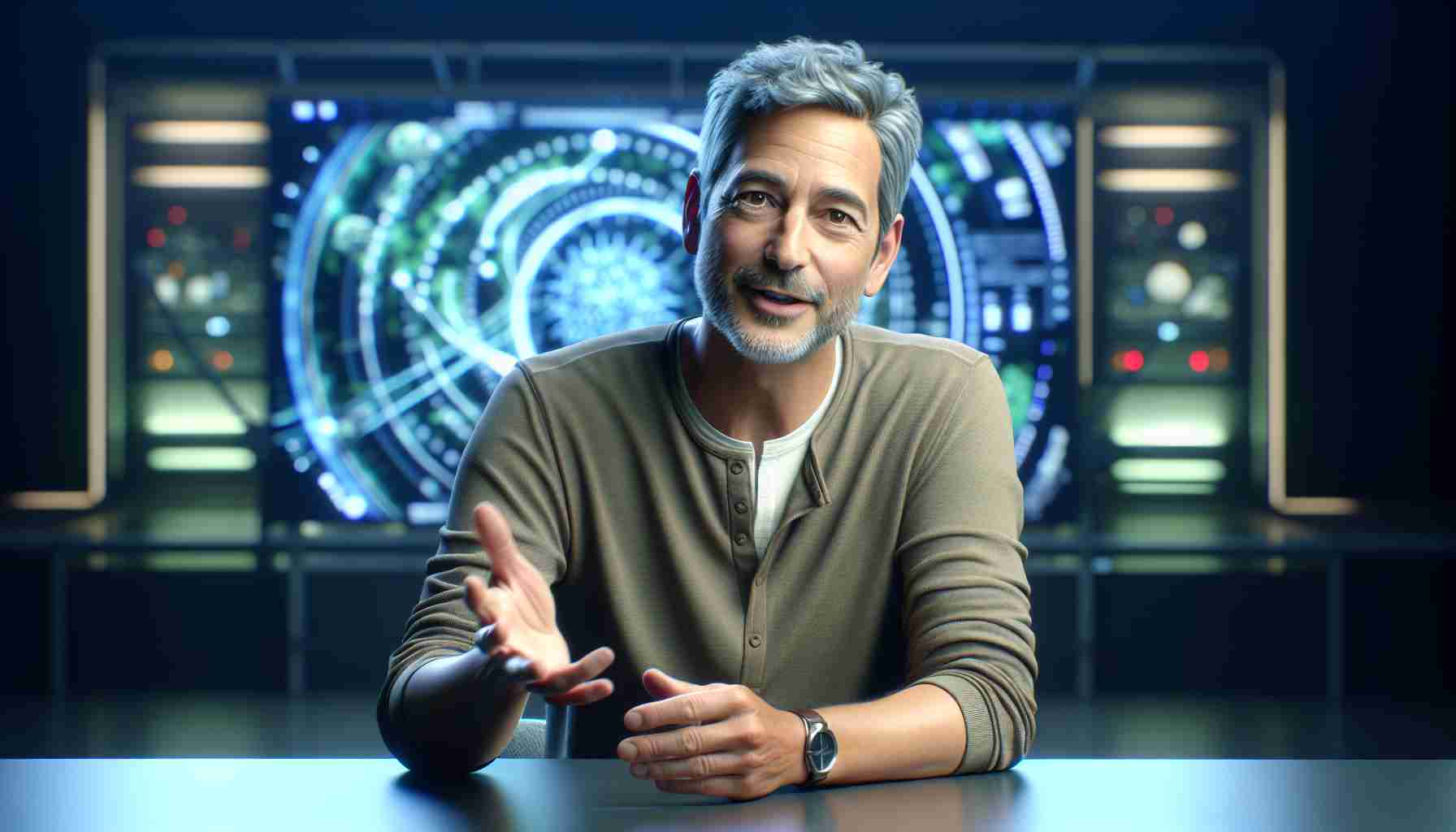In a surprising turn of events, Jon Stewart, former host of The Daily Show, found a new platform to express his views on hot-button topics such as China and artificial intelligence (AI). Apple TV+ had canceled his show, The Problem With Jon Stewart, reportedly due to disagreements over the topics he wished to discuss. However, Stewart seized the opportunity to share his criticisms on his old platform, The Daily Show, in an episode that aired on April 1.
Stewart’s segment began by addressing the growing concern over AI-generated content, particularly deepfakes that are becoming increasingly realistic. He highlighted the difficulty in distinguishing fact from fiction in the digital era and pointed out how those in charge of the technology seemed unconcerned. Through a series of clips, Stewart showcased AI’s biggest proponents discussing its long-term potential to cure diseases and solve climate change without adequately considering the short-term consequences.
Responding to Google CEO Sundar Pichai’s claim that AI is “more profound than fire or electricity,” Stewart humorously retorted, “Yeah, suck a dick, fire!” He expressed his worry that AI would lead to the replacement of human jobs, leaving people economically vulnerable and lacking purpose in their daily lives. Stewart further emphasized this concern with additional clips of AI evangelists validating the potential job displacement. One CEO even clumsily justified laying off 90 percent of their staff in favor of AI, recognizing the brutality of such a decision.
Continuing his critique, Stewart highlighted the inadequacy of lawmakers in regulating AI. He pointed out the recurring rhetoric of job retraining for those whose professions are being replaced, despite limited evidence of successful reintegration. Stewart humorously referred to the new job AI supposedly creates as “prompt engineer,” categorizing it as a mere “types question guy.” He questioned the optimistic perception of regulation given the immense capitalist potential of AI. According to Stewart, the relentless pursuit of profits and new markets prevails over preserving the accustomed way of life, which is a harsh reality for humans.
Jon Stewart’s perspective on artificial intelligence provides a refreshing take on the topic, highlighting the potential pitfalls and consequences often overlooked by its biggest proponents. The segment serves as a reminder to critically examine the impact of technological advancements and calls for a more thoughtful approach to AI regulation.
Frequently Asked Questions
1. Why was Jon Stewart’s show, The Problem With Jon Stewart, canceled?
A: Reports suggest that the show was canceled by Apple TV+ due to disagreements between the streamer and Jon Stewart over the topics he wished to cover, including China and artificial intelligence.
2. Where did Jon Stewart express his views on AI after the cancellation of his show?
A: Jon Stewart utilized his former platform, The Daily Show, to share his criticisms on artificial intelligence.
3. What were Stewart’s concerns regarding AI?
A: Stewart expressed concerns about the rapid advancements in AI-generated content, particularly deepfakes, and the difficulty in distinguishing truth from fiction online. He also highlighted the potential job displacement and economic vulnerability that AI could bring.
4. Why did Stewart question the ability of lawmakers to regulate AI?
A: Stewart argued that lawmakers have historically repeated the notion of job retraining for those affected by technological advancements without significant evidence of its effectiveness. He also pointed out the strong influence of capitalist interests on the regulation of AI.
5. What message did Stewart convey about the impact of AI on human life?
A: Stewart emphasized that the pursuit of profit and new markets in the AI industry often takes precedence over maintaining the familiar way of life for humans. He questioned the optimistic perception of regulation given the significant financial potential of AI.
The AI industry is experiencing rapid growth and innovation, with companies like Google leading the charge in developing advanced AI technologies. Market forecasts suggest that the global artificial intelligence market will reach a value of $190.6 billion by 2025, fueled by increasing investments in AI research and development.
However, along with the potential benefits of AI, there are also concerns and challenges that need to be addressed. One of the main issues discussed by Jon Stewart is the rise of AI-generated content, particularly deepfakes. Deepfakes are realistic synthetic media, such as videos or images, that are created using AI techniques. They have the potential to spread misinformation and manipulate public opinion, posing a significant threat to media integrity and trust.
Another major concern raised by Stewart is the impact of AI on the job market. Many experts fear that AI will lead to widespread job displacement, as machines and algorithms become more capable of performing tasks traditionally done by humans. According to a study by the World Economic Forum, it is estimated that by 2025, automation and AI could lead to the loss of 85 million jobs globally, while creating 97 million new jobs.
The issue of AI regulation is also a topic of discussion. As Stewart pointed out, there is a lack of effective regulation and oversight when it comes to AI technology. Lawmakers often rely on the promise of job retraining and education to address the potential economic impact of AI, but the success of such initiatives remains questionable. Moreover, the influence of capitalist interests on AI regulation raises concerns about whether adequate measures will be put in place to protect the well-being of workers and society as a whole.
To learn more about the AI industry and related market forecasts, you can visit MarketsandMarkets or Statista. These sources provide valuable insights into the current state and future prospects of the AI industry.
It is clear that the debate around artificial intelligence is complex and multifaceted. Jon Stewart’s perspective on AI serves as a reminder of the need for critical examination of the impact of technological advancements. As AI continues to shape various industries and aspects of our lives, it is crucial to approach its development and implementation with thoughtful consideration and responsible regulation.

